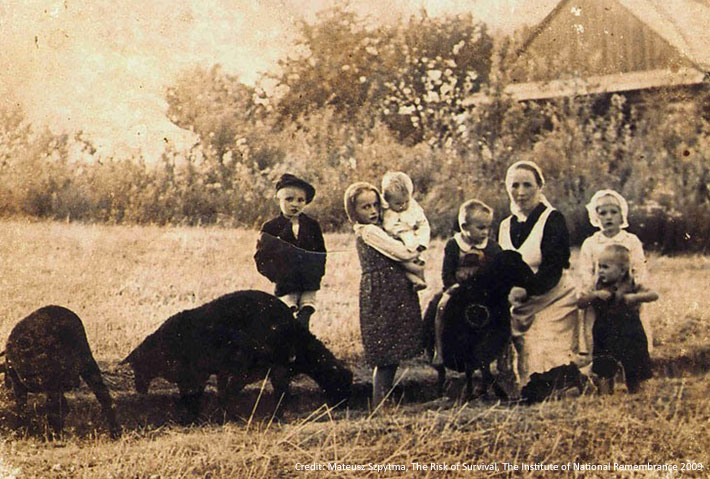While indifference and hostility to the Jews’ fate was common, some Poles chose to help their former Jewish neighbours, even though hiding Jews was punishable by death. The murder of the Ulma family – an entire family that was killed together with the Jews they were hiding – has become a symbol of Polish sacrifice and martyrdom during the German occupation. It stands in stark contradiction to the conduct of the villagers of Jedwabne, who murdered their Jewish neighbours in July 1941, and who have become to represent Polish complicity in the murder of the Jews.
Jozef Ulma was a farmer and lived with his wife Wiktoria and their six young children in the small town of Markowa in the county of Lancut, district of Rzeszow. Ulma cultivated his farm and engaged in photography. With his camera he documented his family and life in his rural town.
The Ulmas, like other residents of Markowa, had witnessed the execution of the Jews of their small town in the summer of 1942. The Jews were taken out of their homes, shot and buried in a former animal burial ground. Some managed to escape and went into hiding in the surrounding area. In November 1942 the local fire brigade was ordered to search for the escapees in the town and its vicinity, and to turn them in to the Germans. The number of Jewish victims in Markowa is unknown.
In the fall of 1942, while the hunt for Jews was going on in the entire area, a Jewish family from Lancut by the name of Szall came to Markowa to find shelter. When they asked Josef and Wiktoria Ulma to hide them, the couple agreed, and took them in along with two sisters – Golda and Layka Goldman. “These Jews stayed on the premises of the Ulmas and slept in the garret of the house..."



